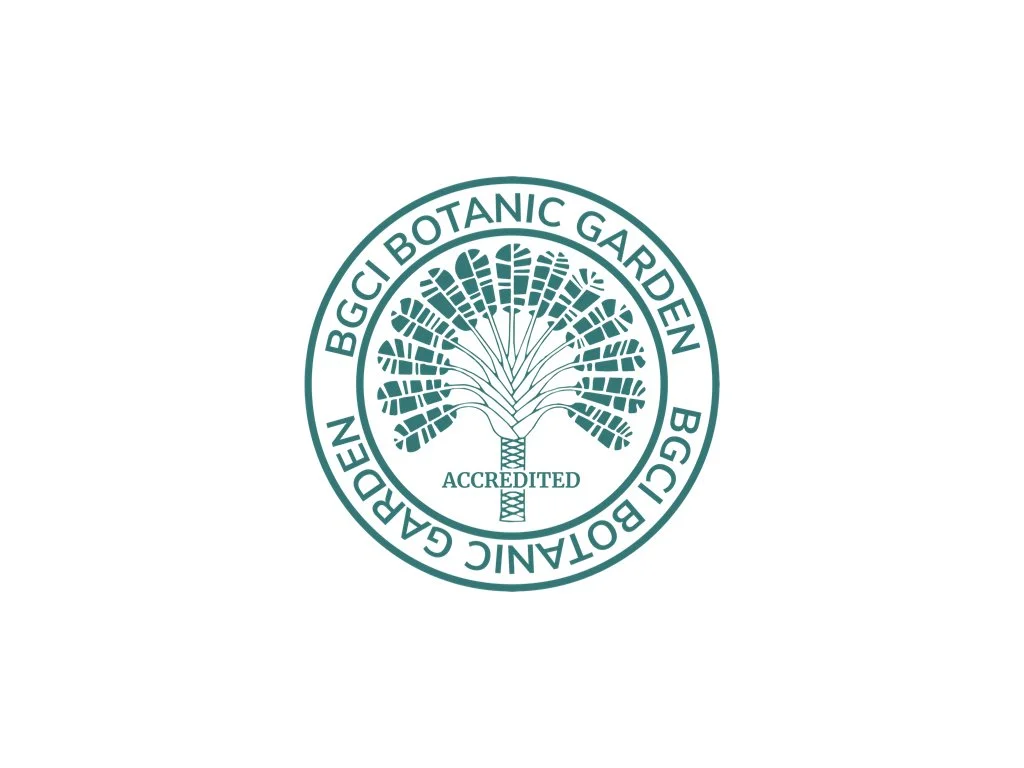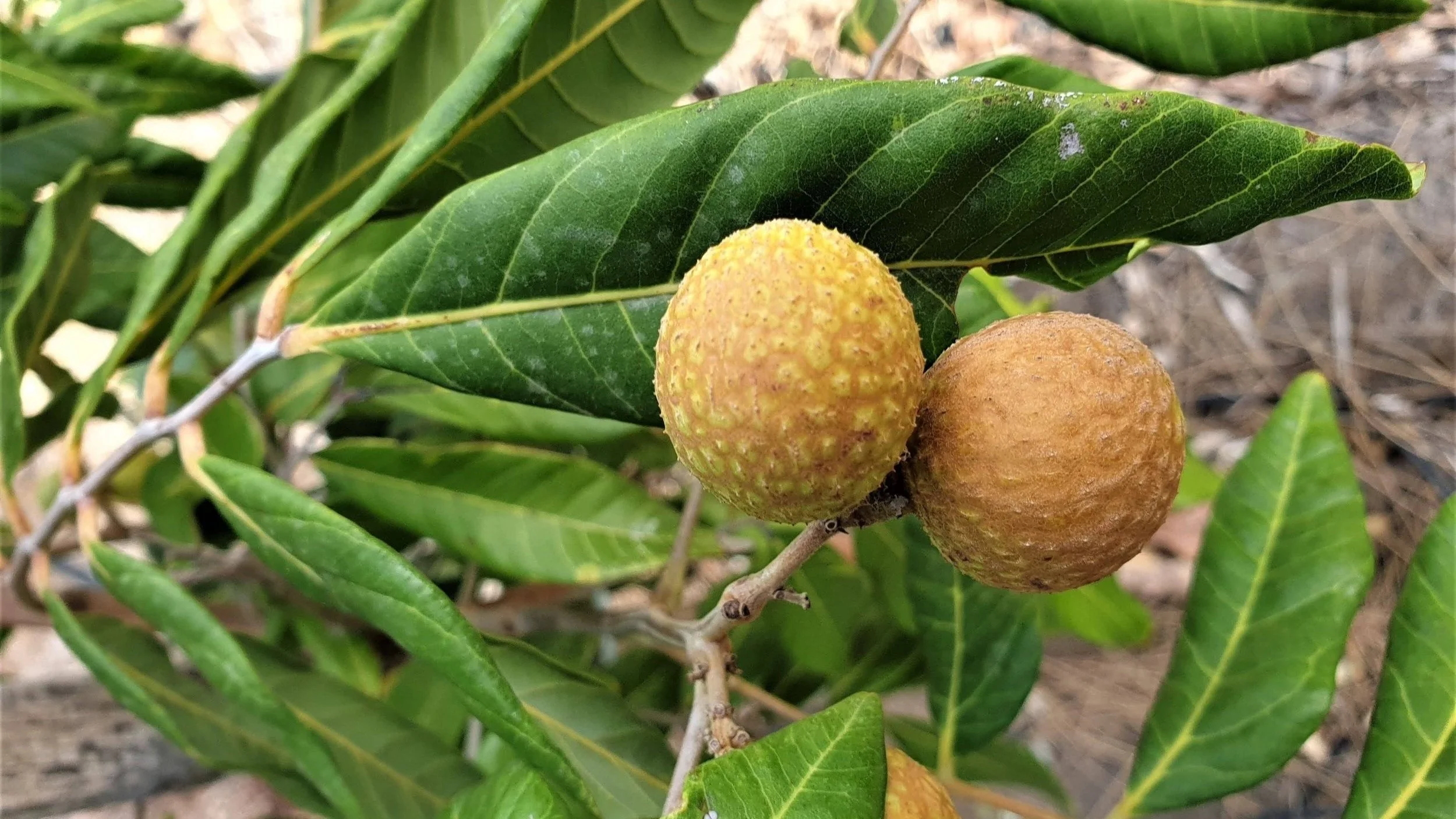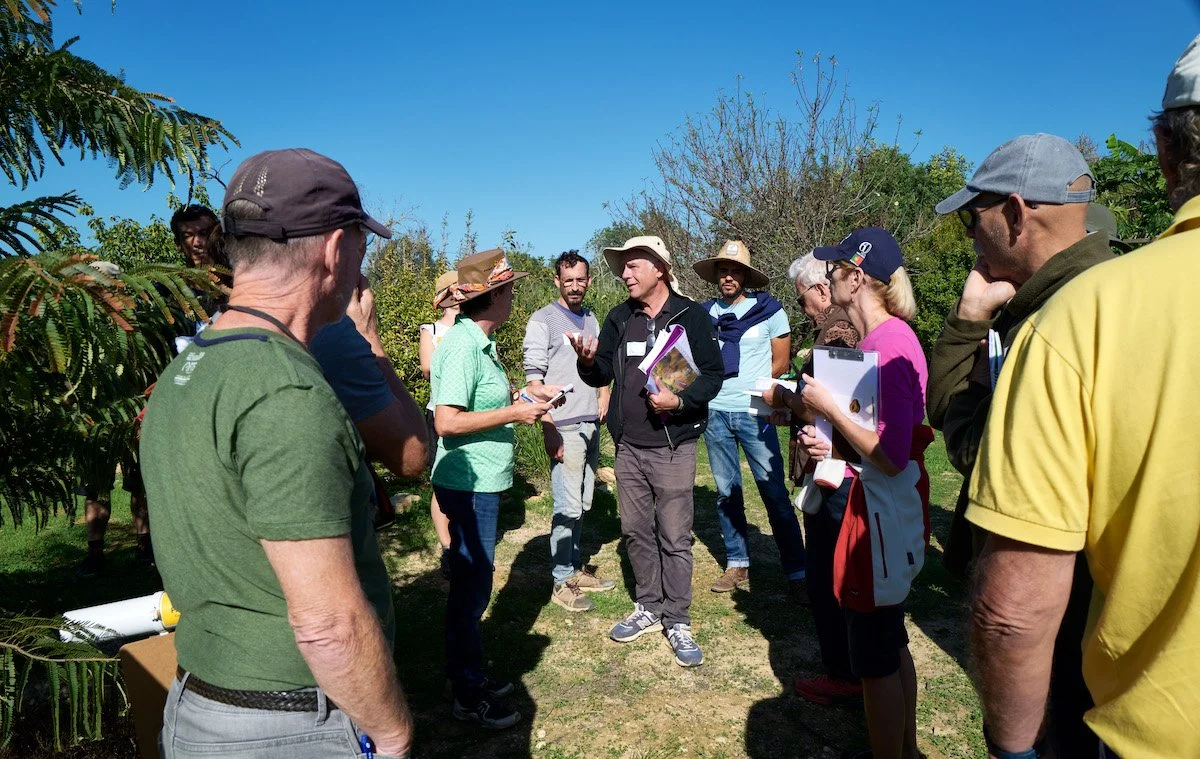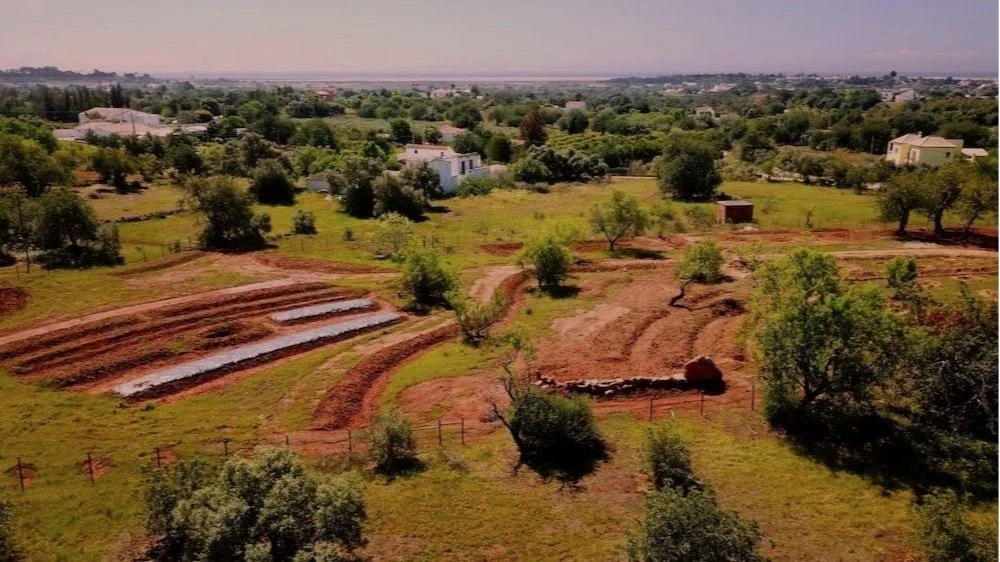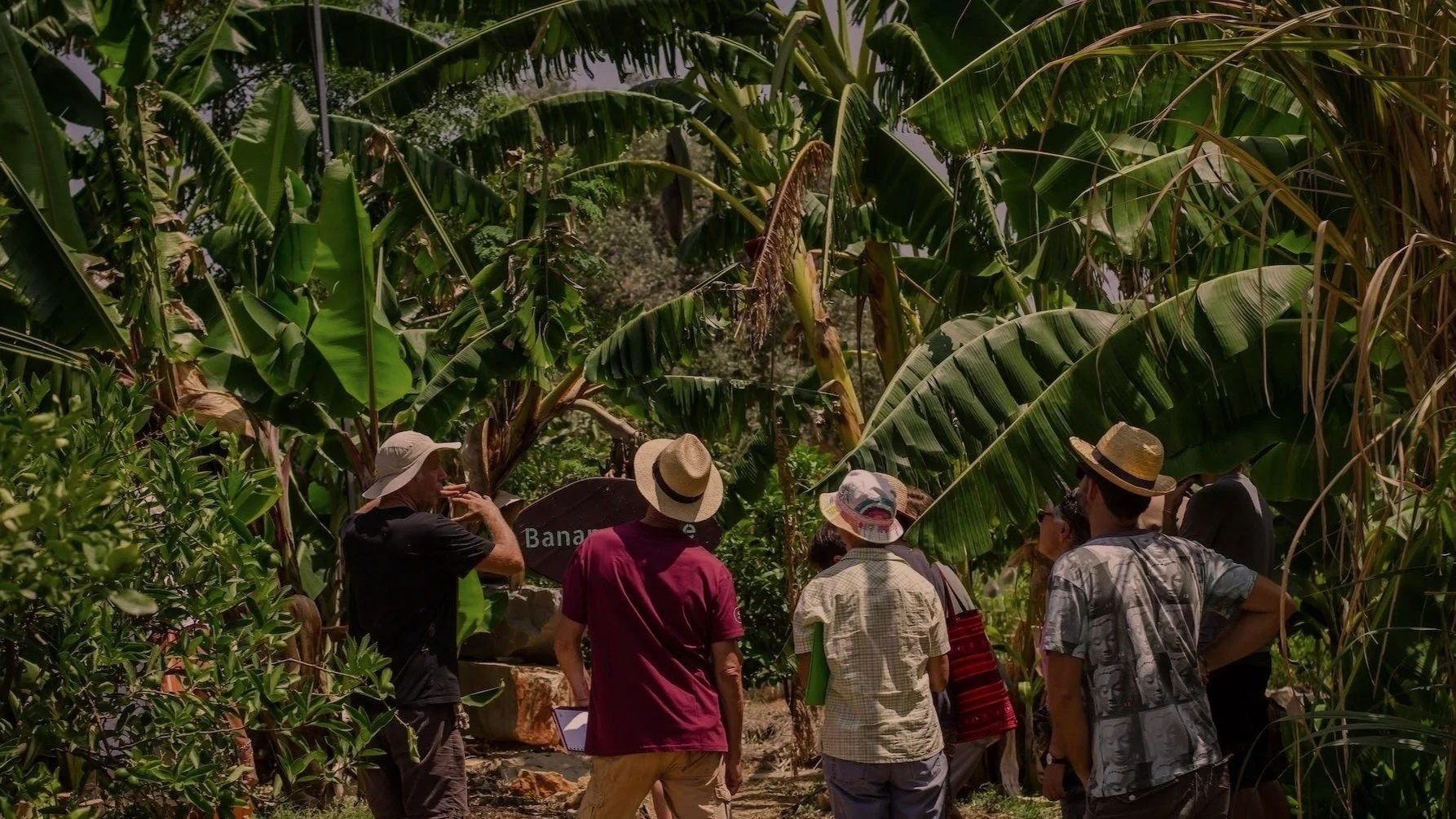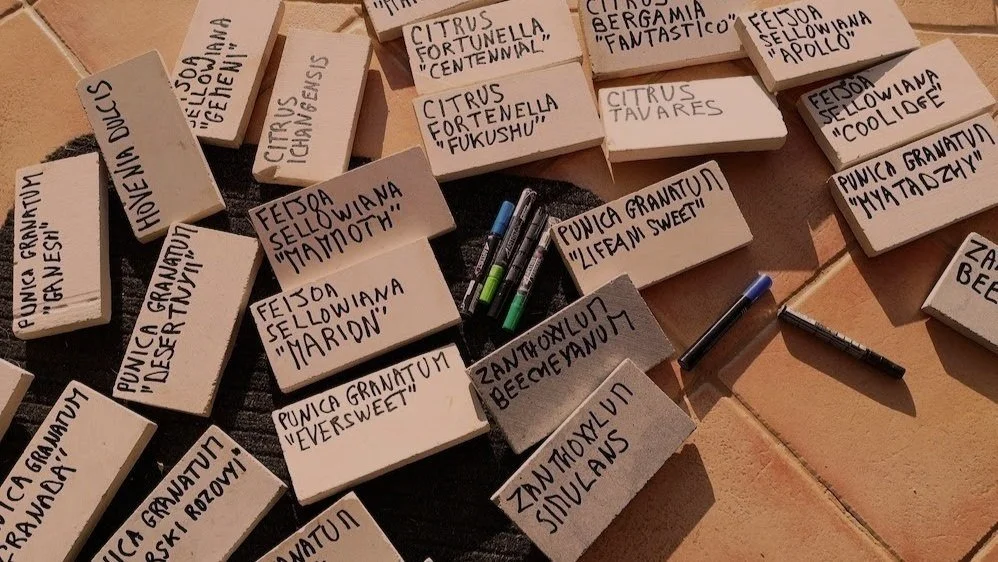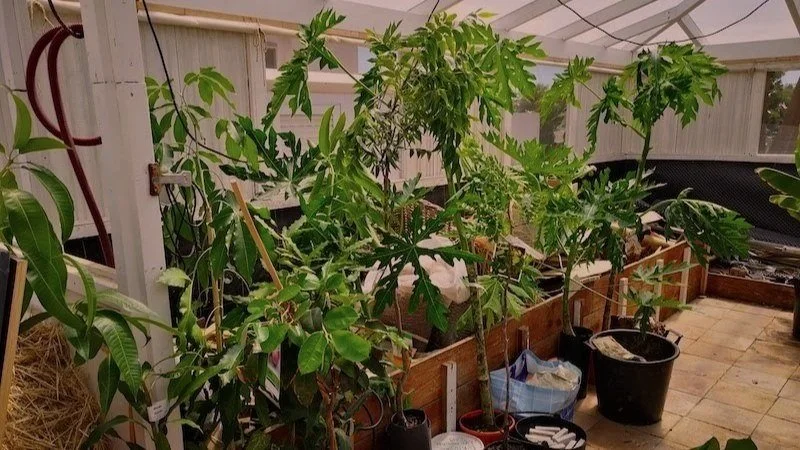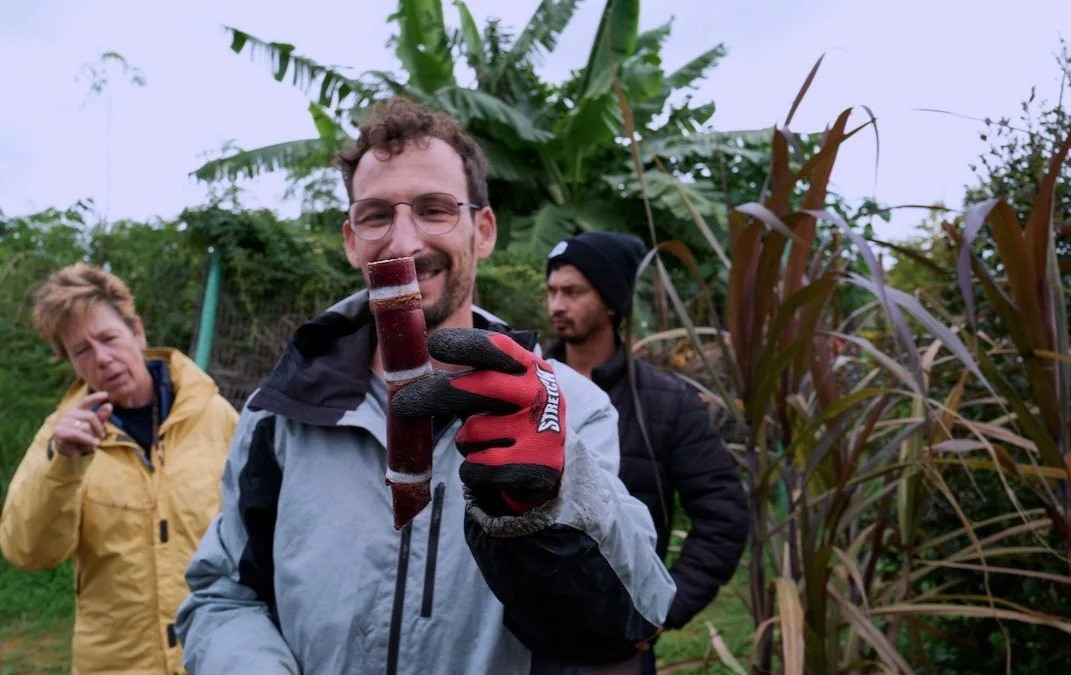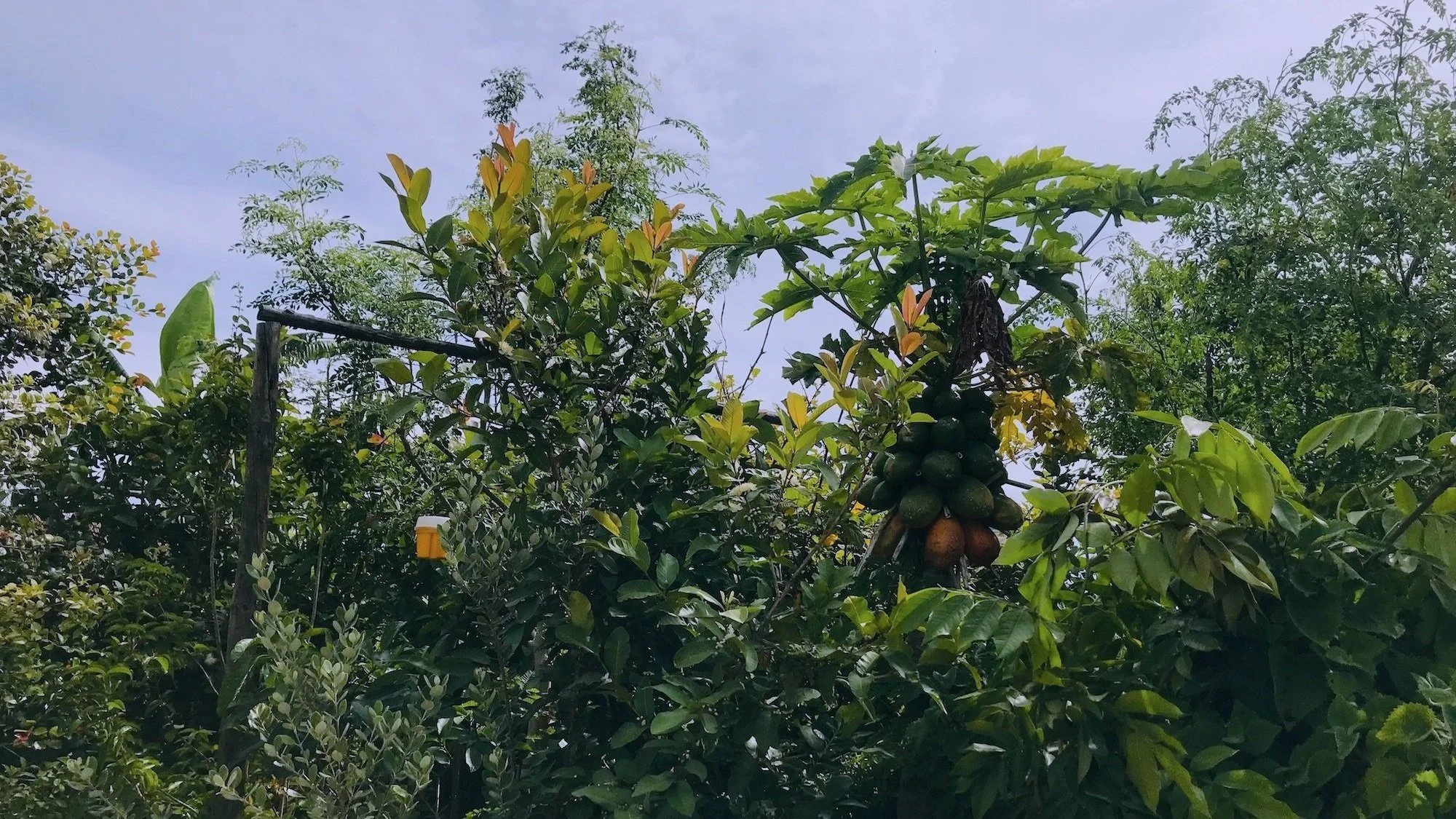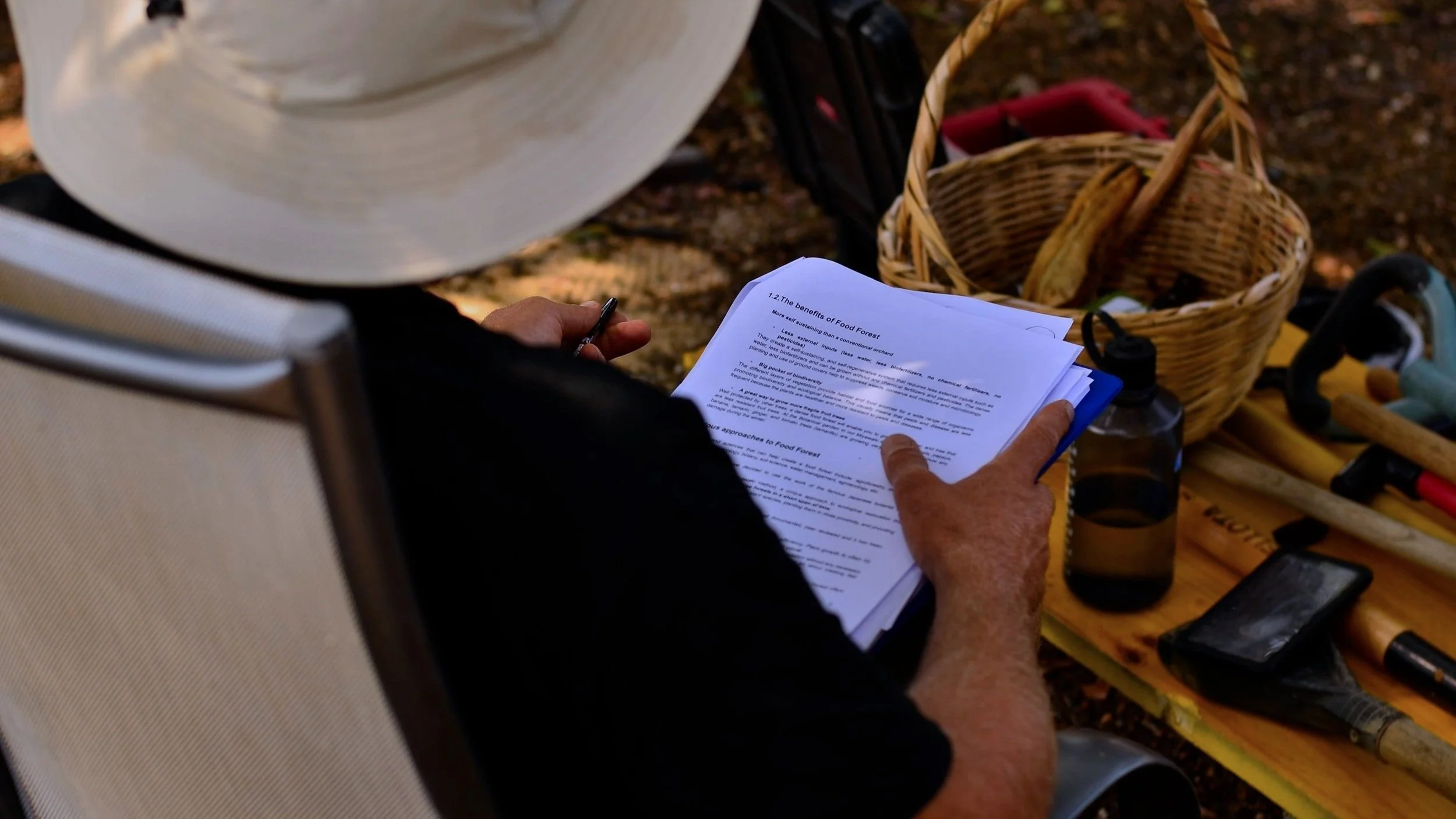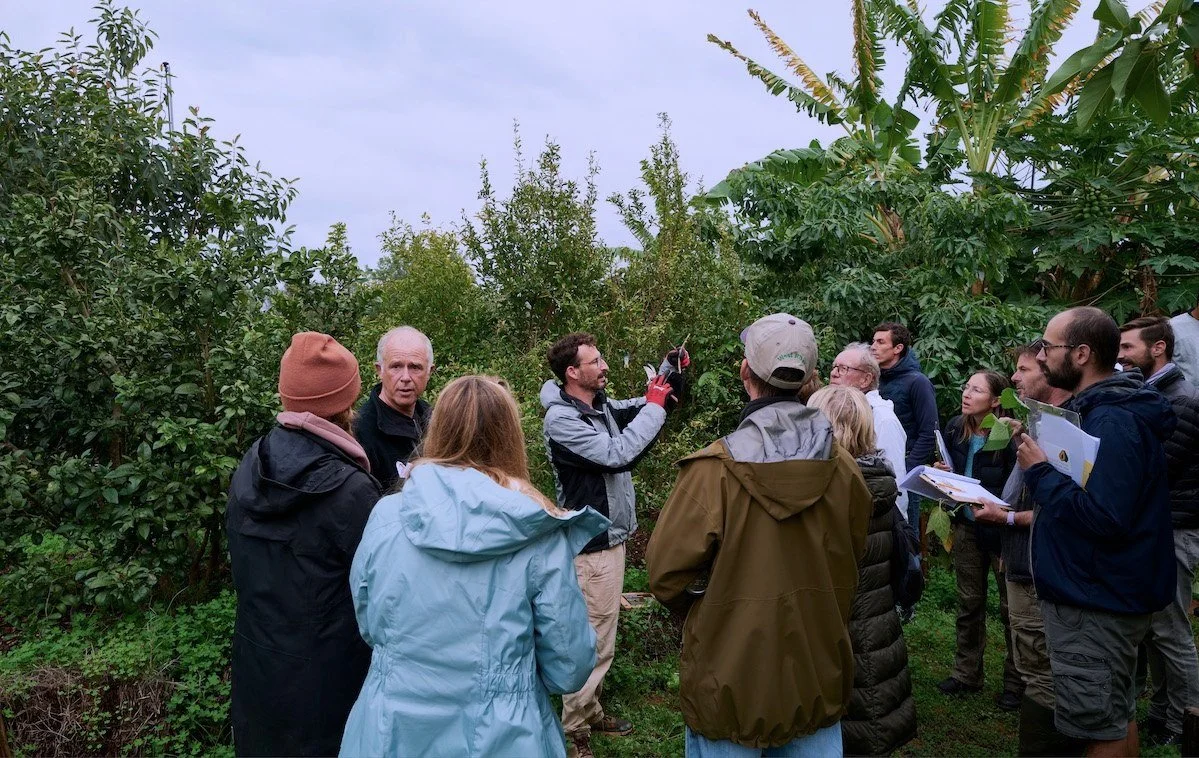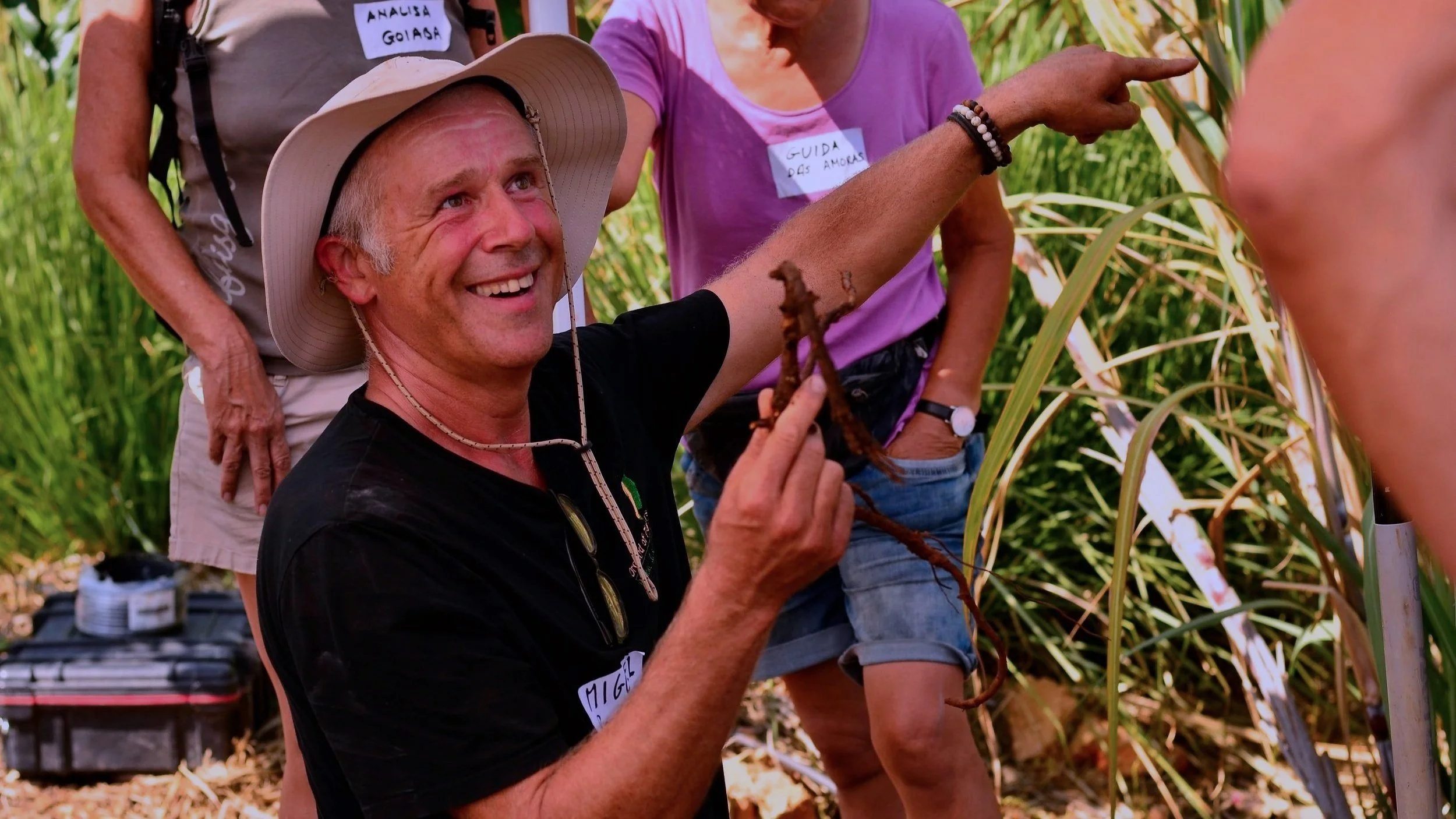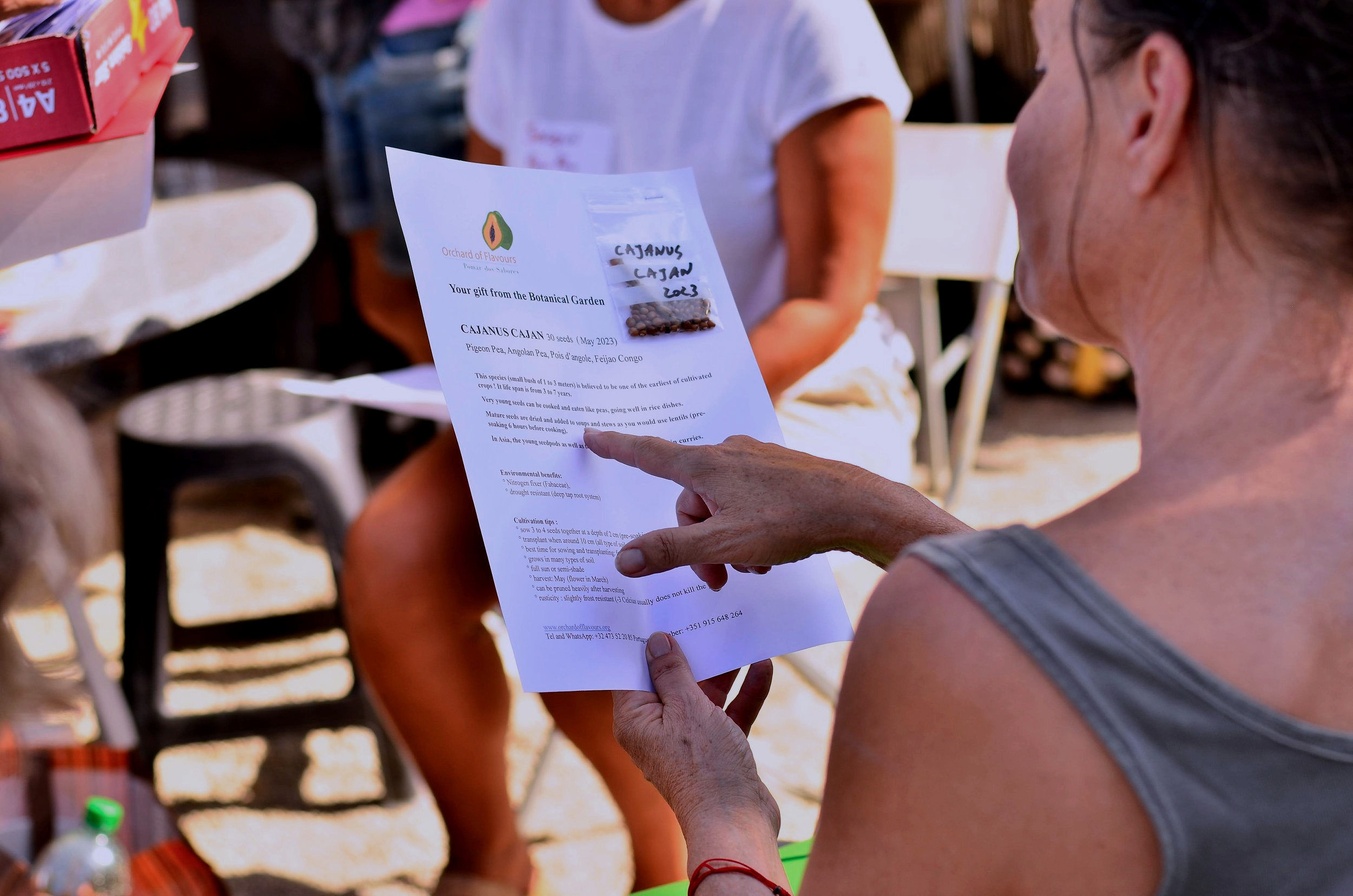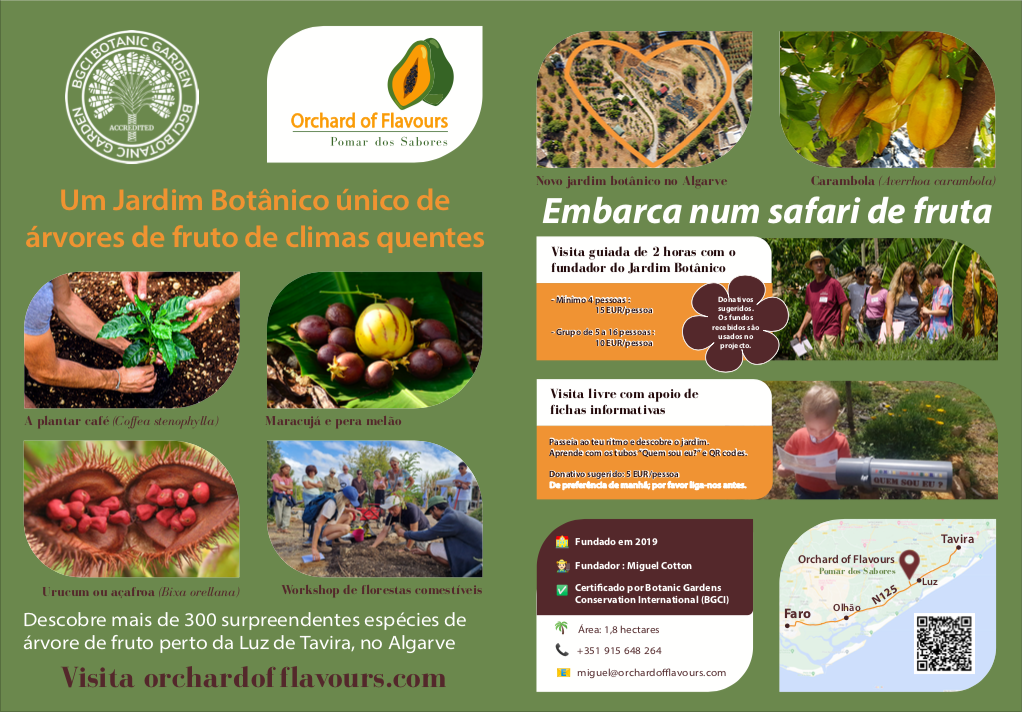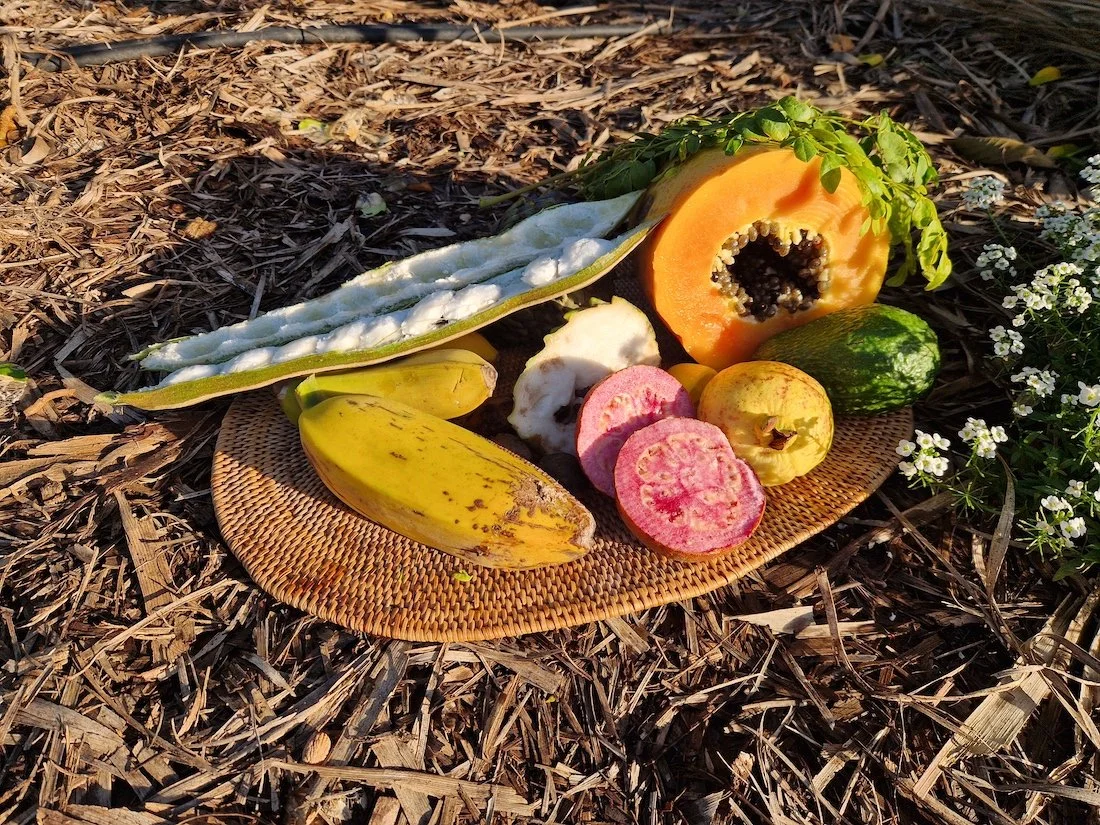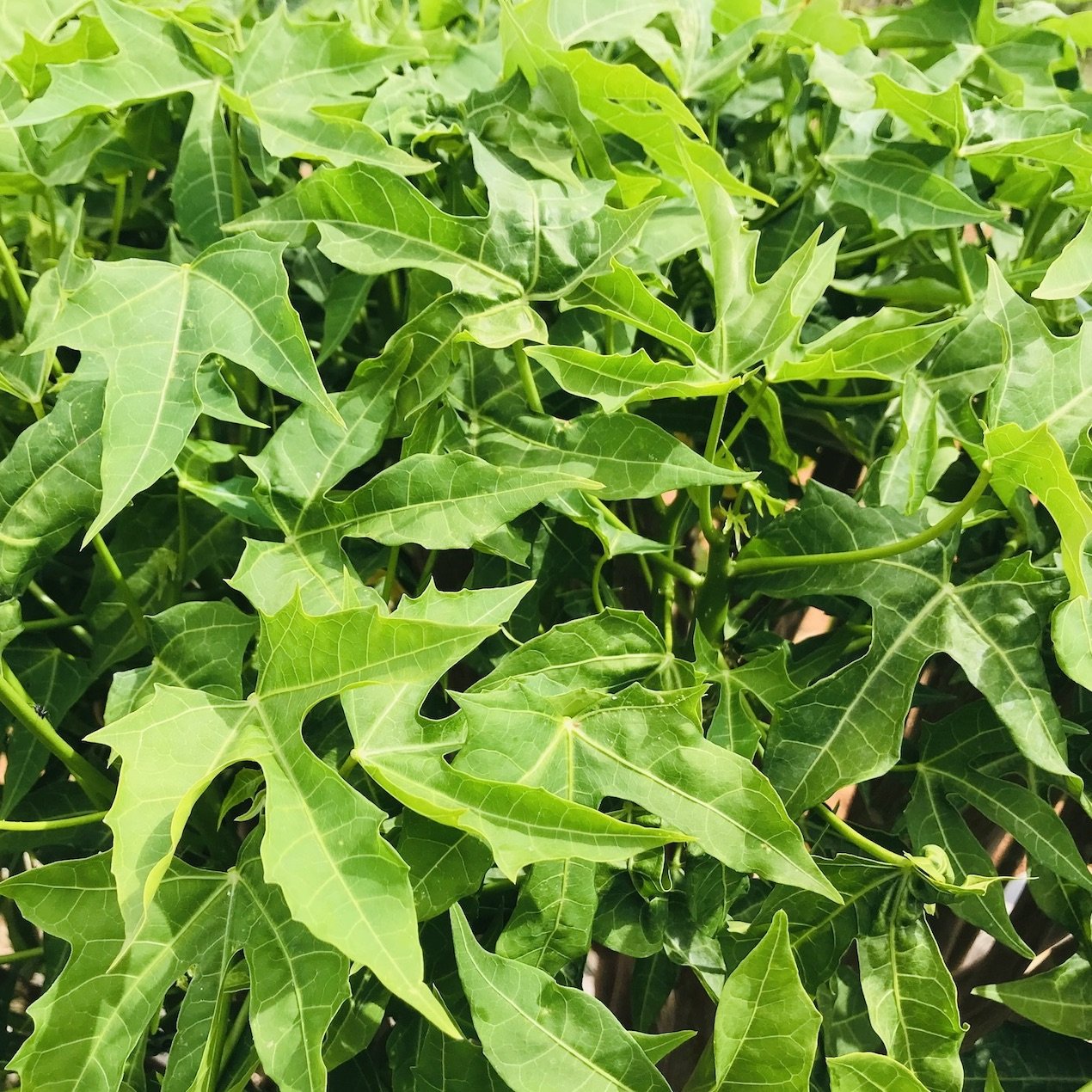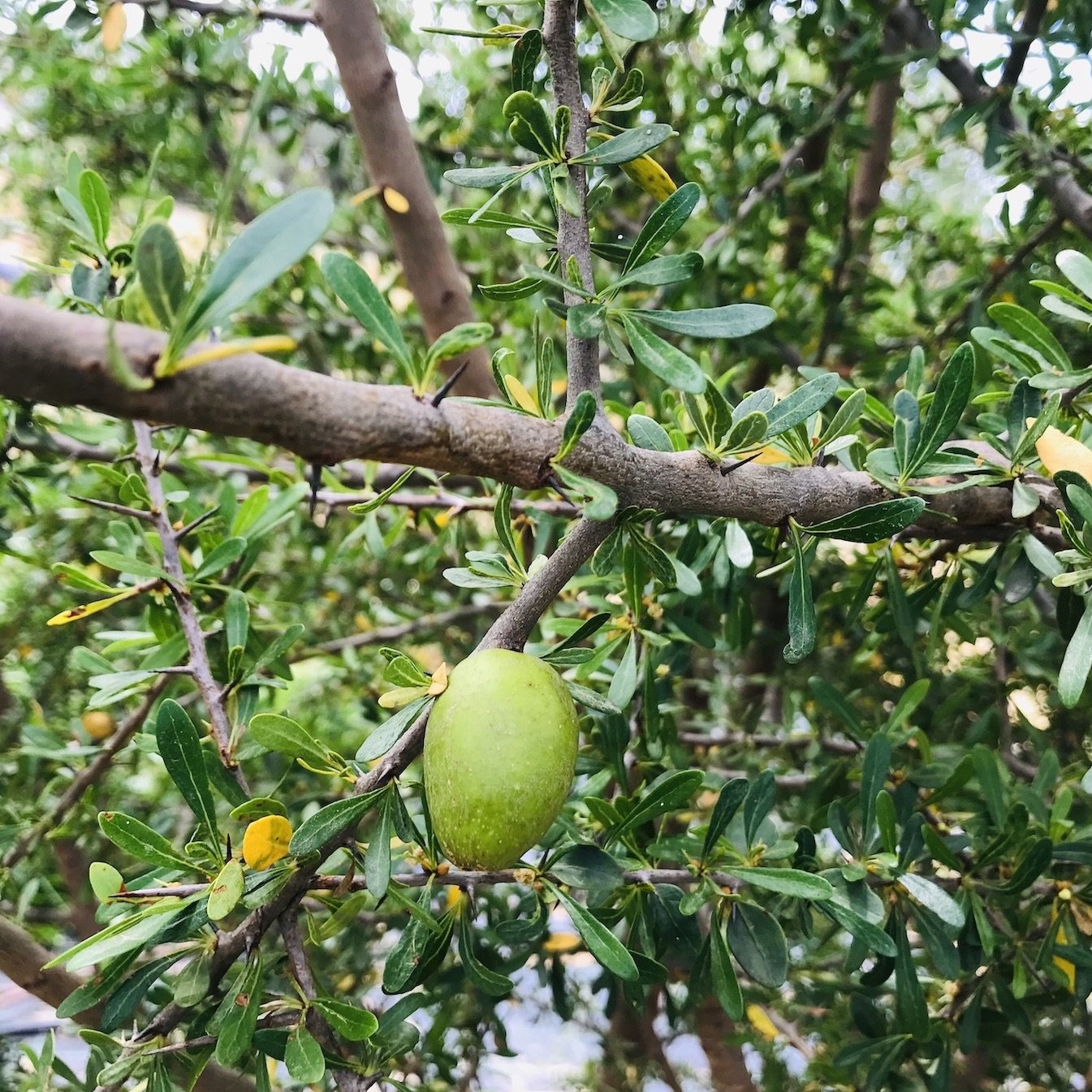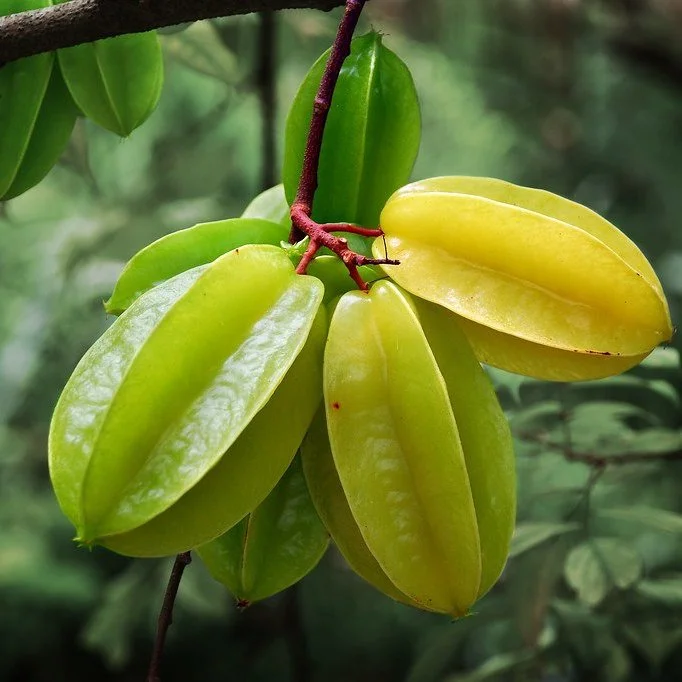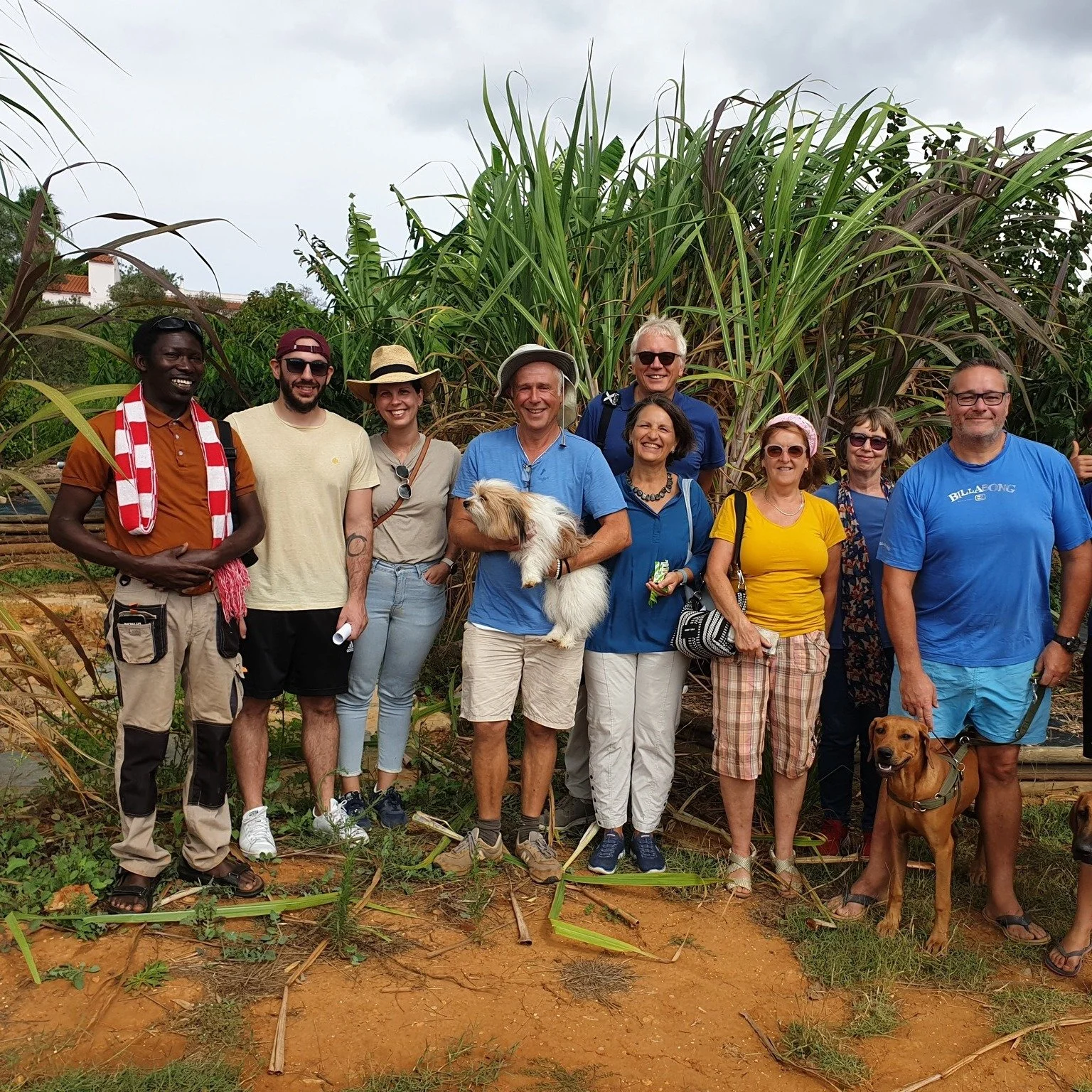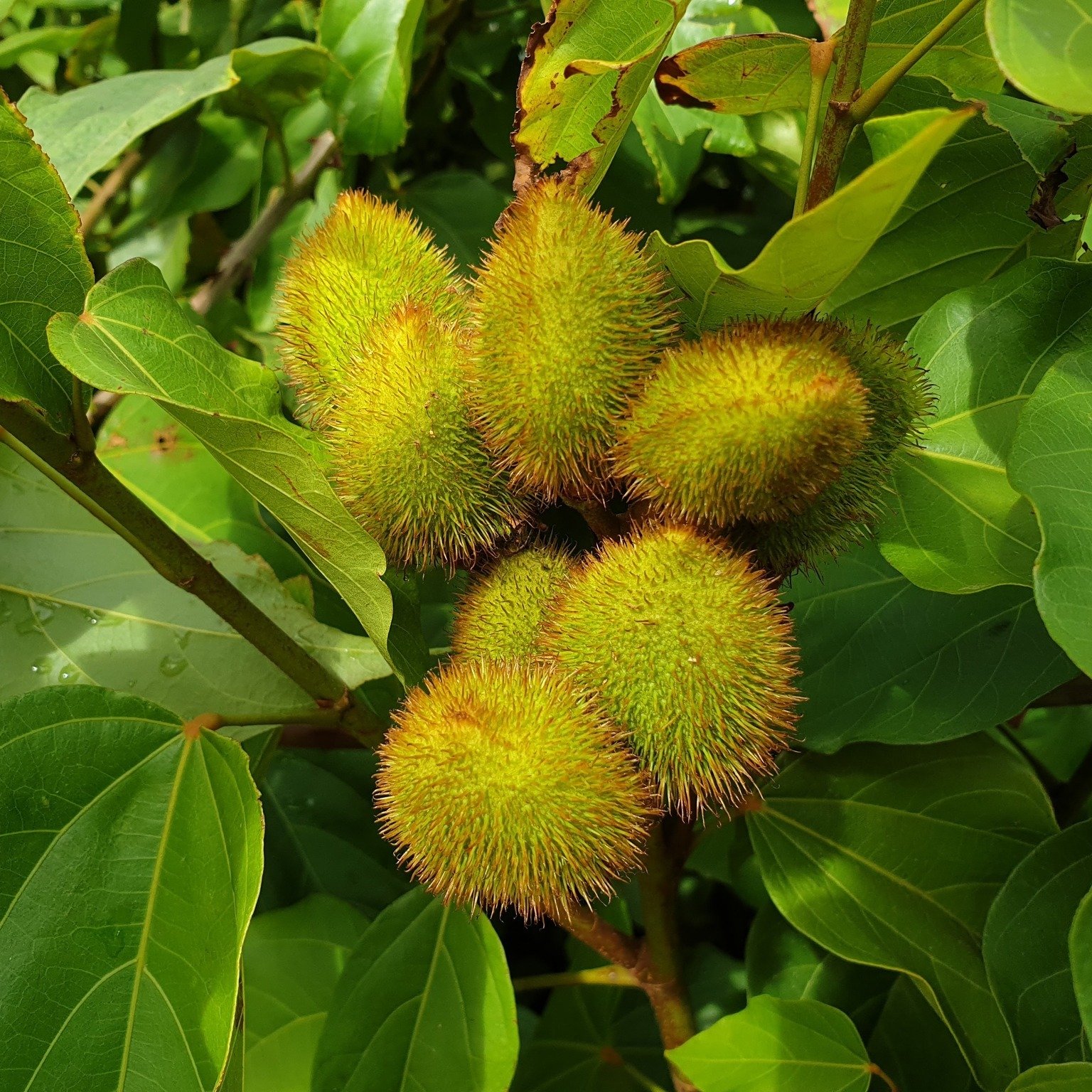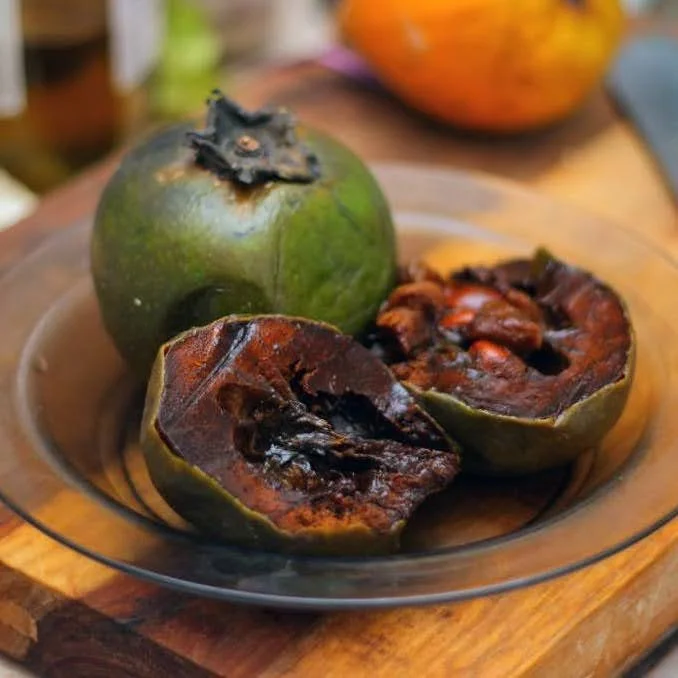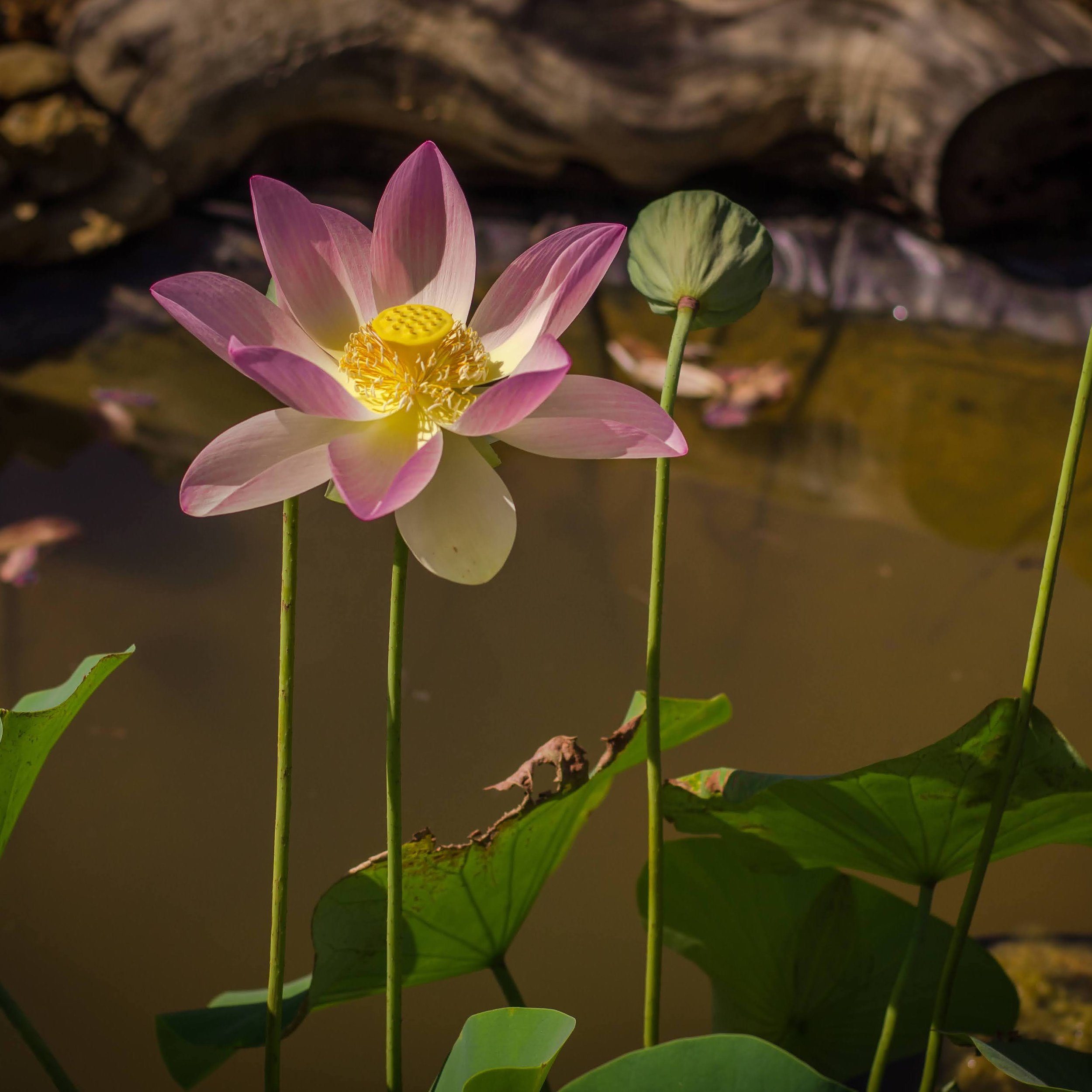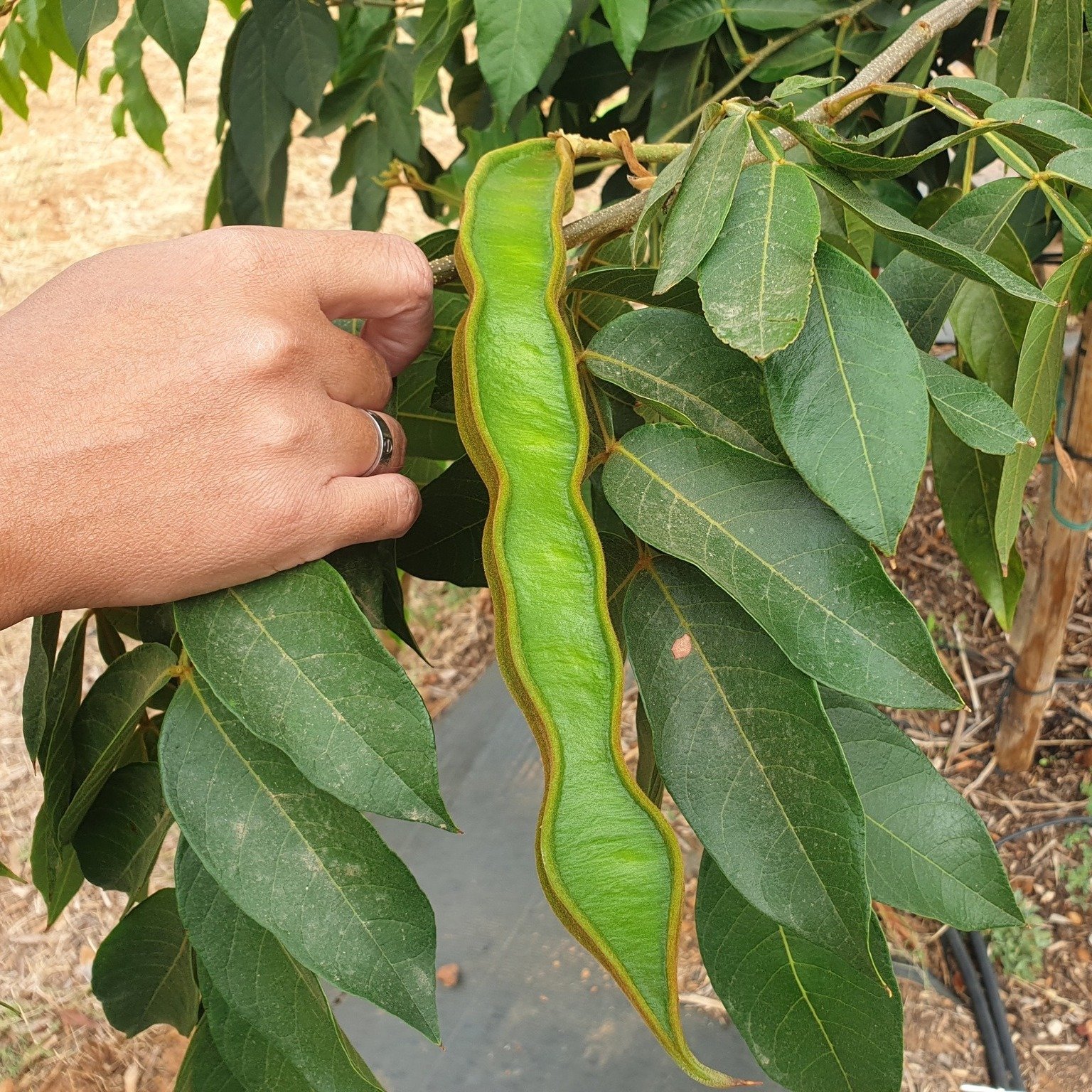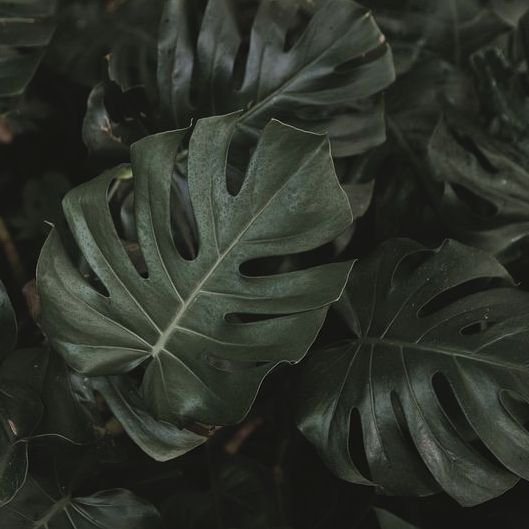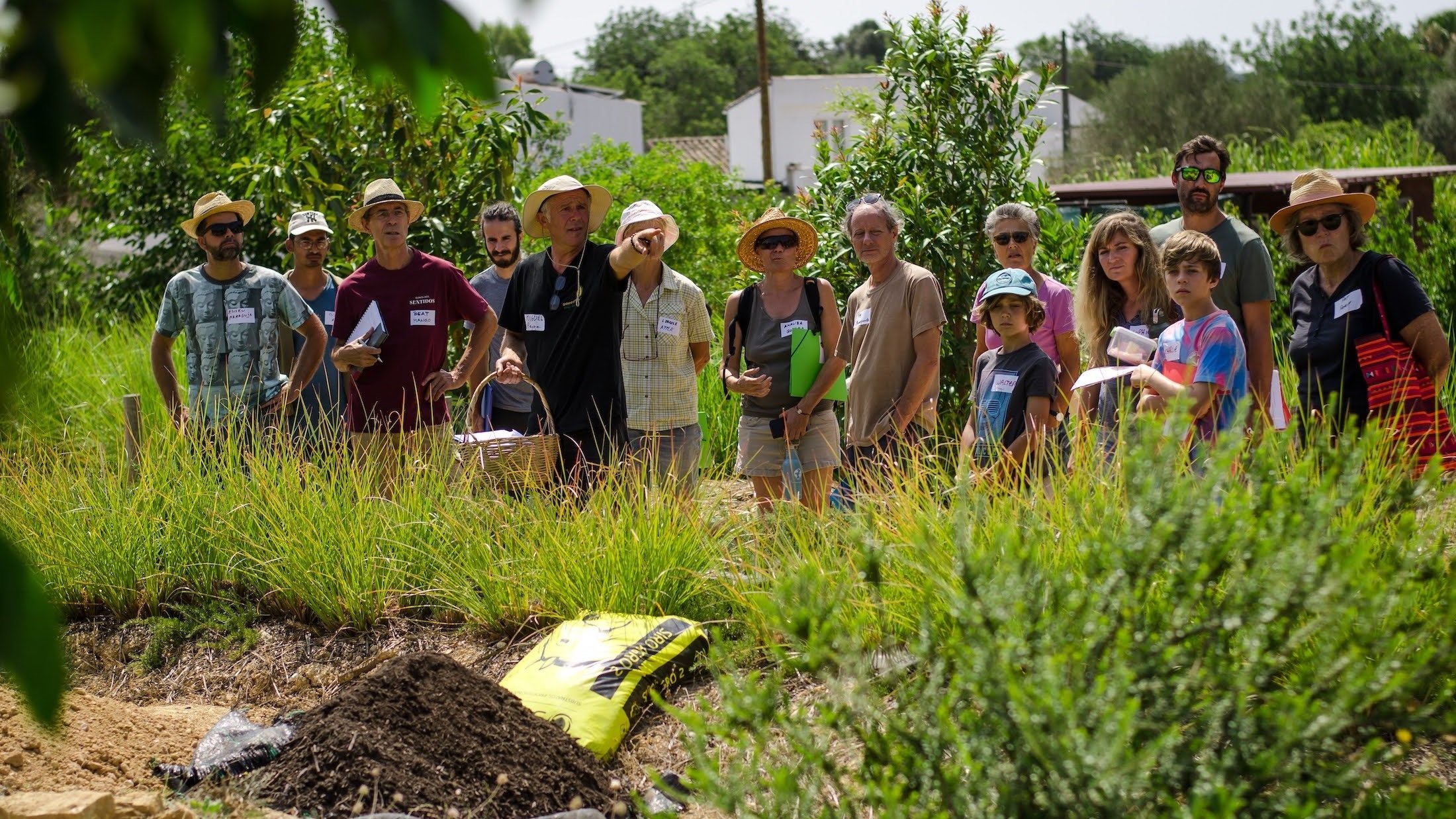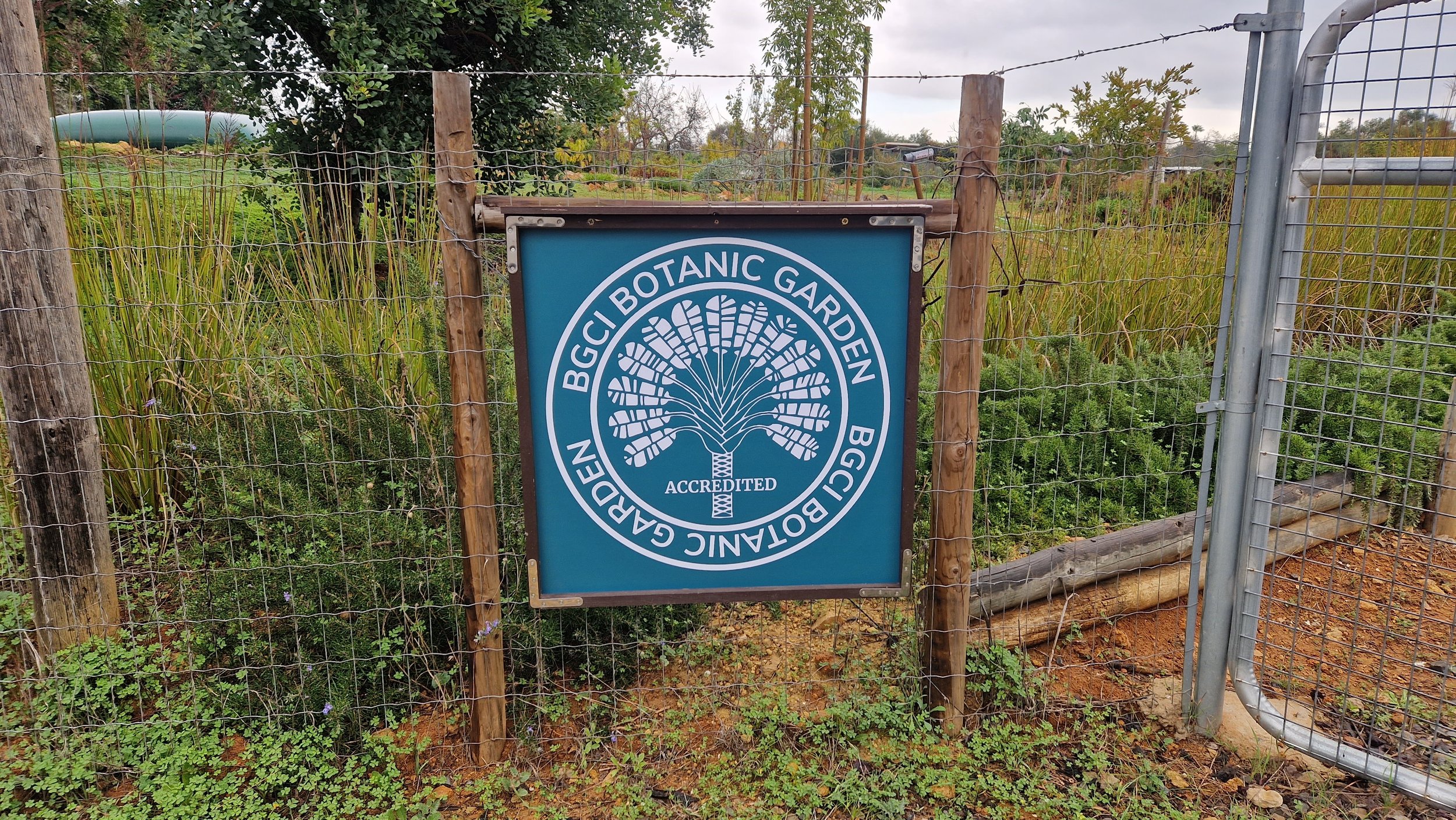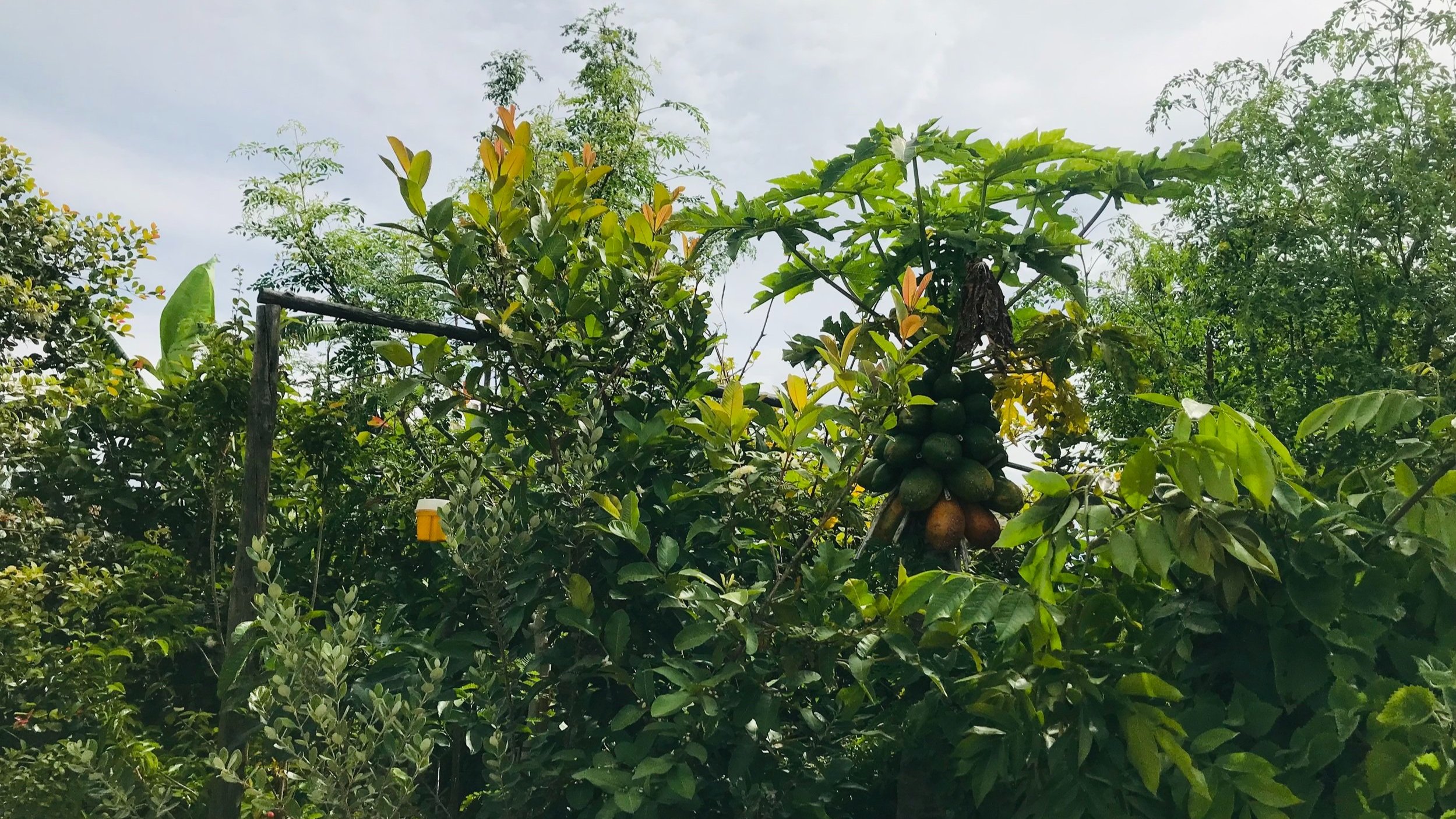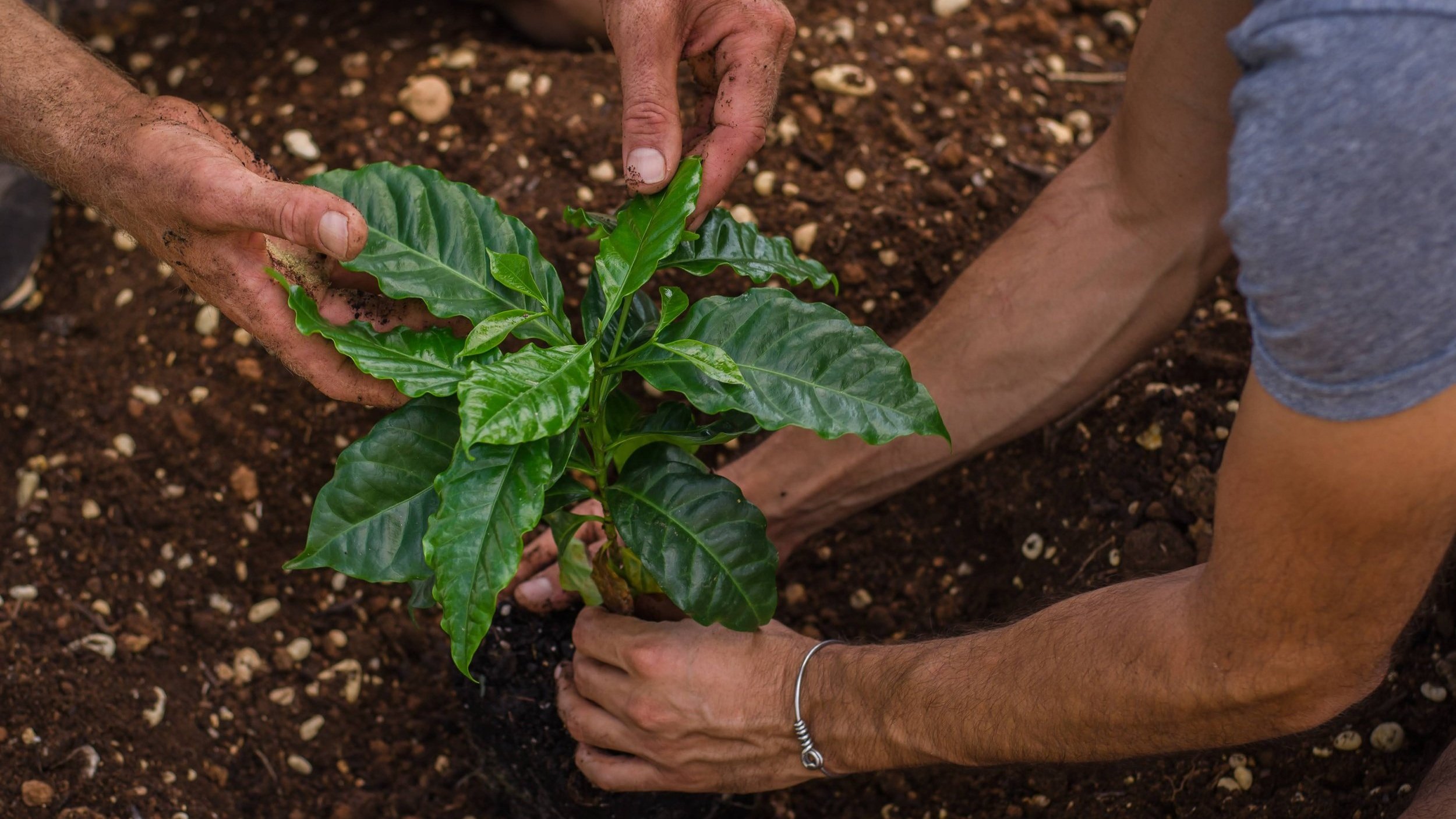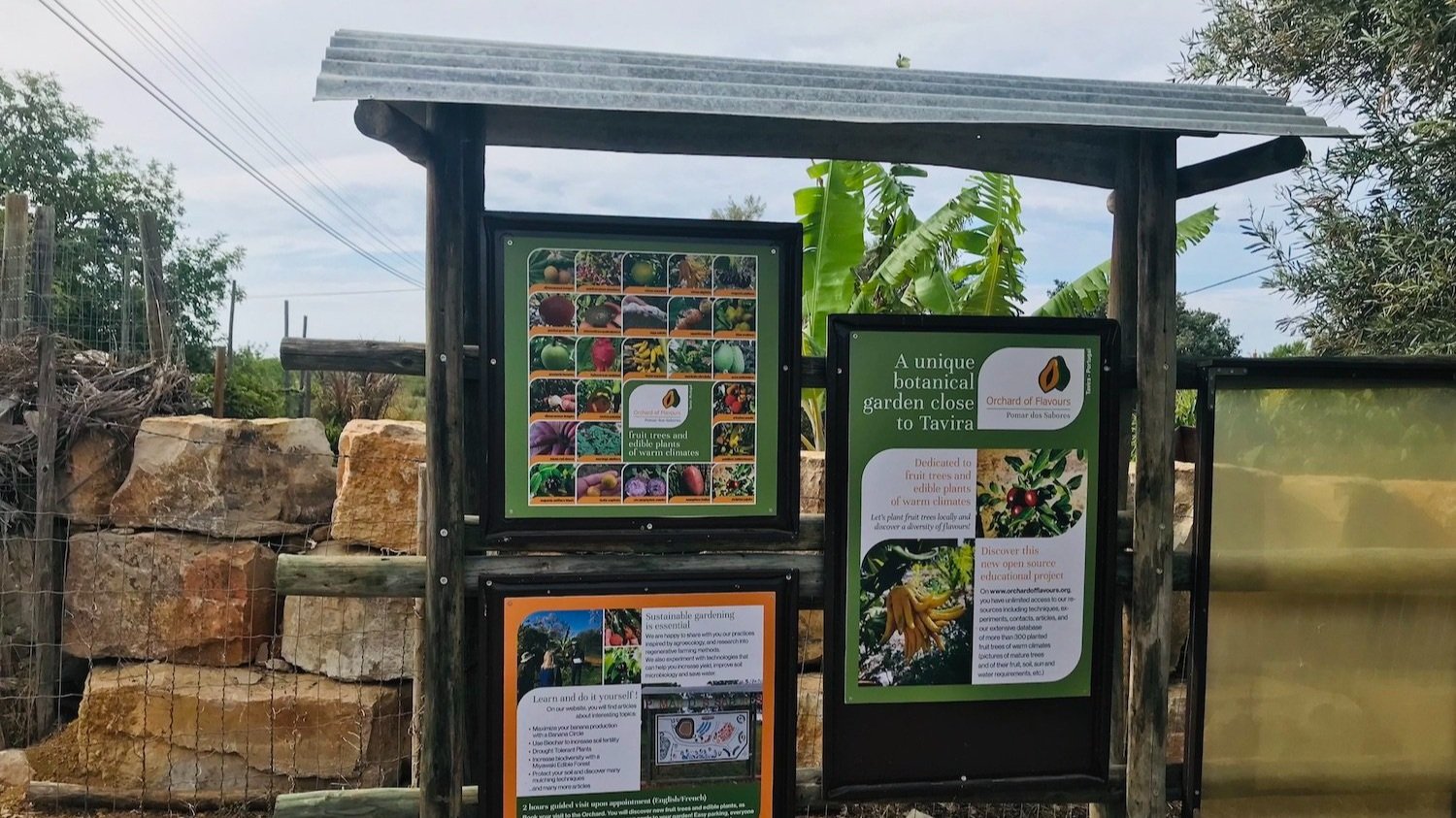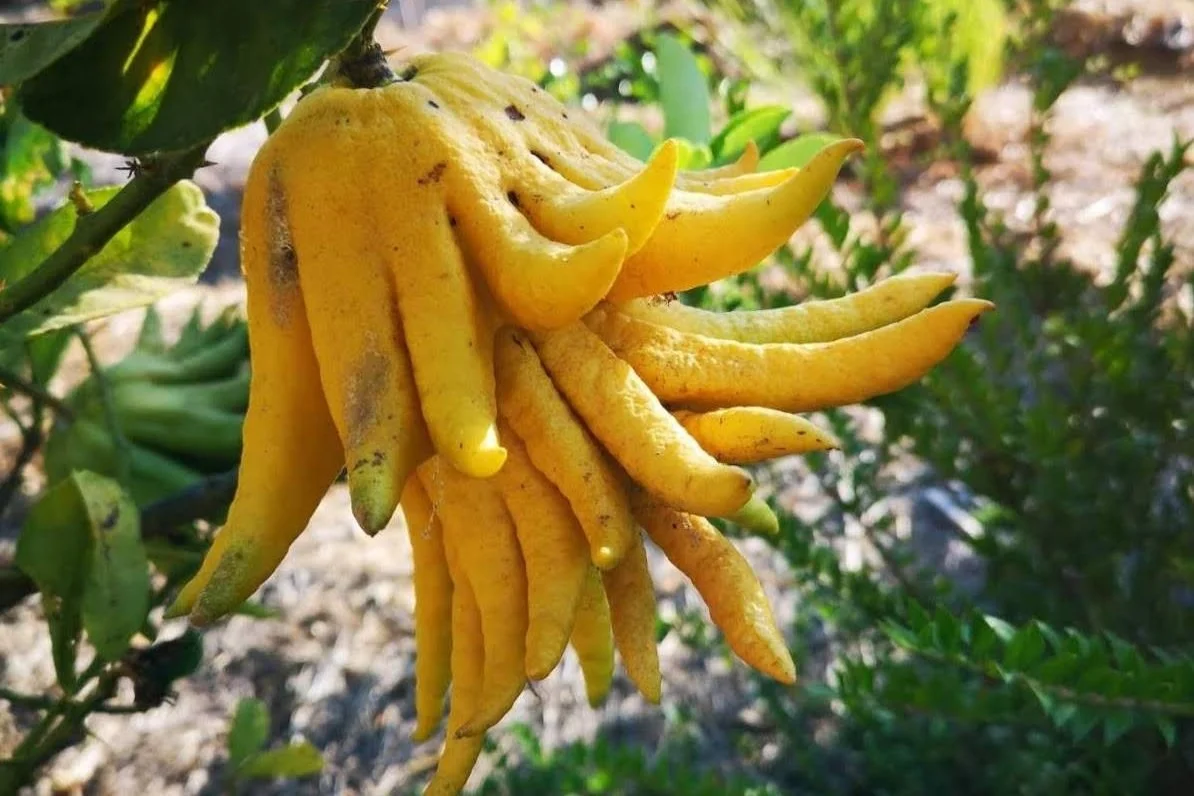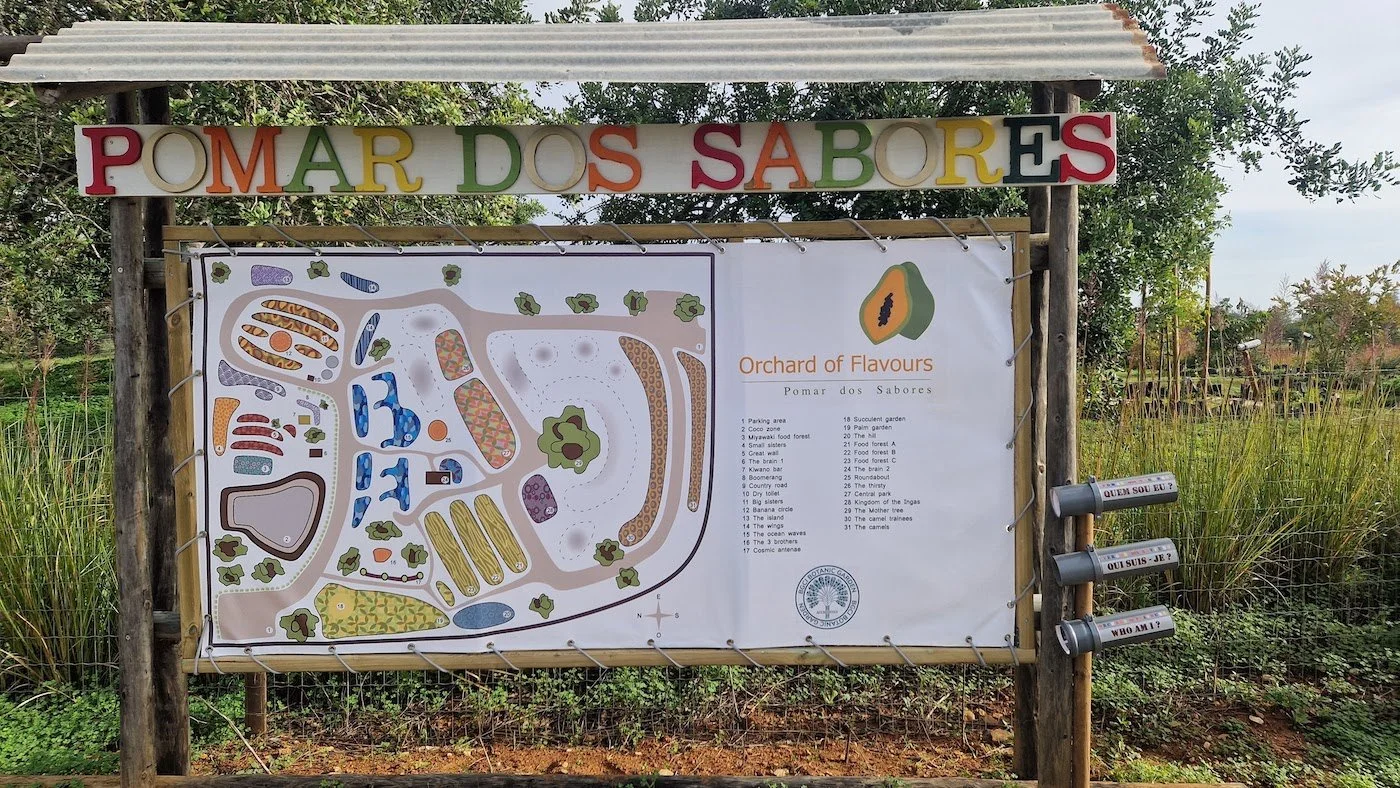An edible botanical garden.
Discover Orchard of Flavours Botanical Garden, in Tavira (our July 2024 video)
🥭 Cultivating more flavours locally
From exotic fruit trees to perennial treasures, we’re dedicated to enriching our local landscape.
🌵 Adjusting to climate change
Join our research on water-saving techniques and on drought-resistant fruit trees.
📚 Sharing knowledge
As a non-profit educational oasis, all our findings are freely shared, nurturing a community of conscious growers.
A few hundred meters from the Atlantic Ocean and near the historic town of Tavira, in the south of Portugal, Orchard of Flavours (Pomar dos Sabores) brings together a wide variety of edible plants, especially fruit trees, from all over the world. It’s the perfect place for going on a true Food Tree Safari! 🦓 🥑
This orchard includes species already cultivated in the Algarve, as well as forgotten species and plants rarely found in Europe. Most of these plants originate from subtropical climates. It’s possible for the plants to grow here, because the Algarve enjoys more sunshine than any other part of Europe all year long. All Pomar dos Sabores plants are in the hardiness zones from 9 to 12 (using USDA standard). That means they either don’t tolerate frost at all or only occasionally.
The most important goals of this botanical garden of edible plants are to show which fruit production can be relocated to Europe and to share with everyone the knowledge necessary for the success of their own efforts. At the same time, it shows how an environment-friendly approach can be implemented in a private garden.
More than 400 fruit trees species have already been planted. Emphasis is also placed on the establishment of several varieties of the same species in order to discover different flavors and different maturation periods, as well as to determine the species most suited to the climate or the soil. For example, there are many varieties of mango trees, of lychees, of pomegranates and so on.
Our intention is to use agricultural water efficiently and to experiment with various other agroecology techniques - several types of mulching as well as using lots of flowers as ground cover, compost ditches and banana circles to improve soil fertility, among others.
Building on this experience, we’re putting together a knowledge base section where you can learn along with us by reading our learn articles. In the spring of 2023, we also started teaching Workshops on different subjects, such as how to grow your own Food Forests, mastering food tree propagation or how to best care and maintain your fruit trees after planting.
You can follow our evergrowing photo Timeline of all the major steps (and there have been many!) we’ve been taking along the way in creating this diverse botanical garden of edible plants.
🇵🇹 💬 O Pomar ainda não tem website em português. Por isso, para já, criámos este folheto. Clique para fazer download.
Guided tour with Orchard of Flavours’ founder, Miguel COTTON
An orchard for agroecological experimentation open to all
Orchard of Flavours (Pomar dos Sabores) is a non-profit experimental garden, the results of which are open to everyone. It has been accredited as Botanical Garden in November 2022 by Botanic Gardens Conservation International (BGCI.org)
A scientific approach is pursued with the project. Each tree is systematically recorded in a database published on this website. Here you can find detailed information regarding the selected plants, their planting process and all the subsequent care given to each plant.
There, you will find the list of trees, their genus, the name of the species and the name of the cultivar-variety (for example: Mangifera indica "Ataulfo"). The database also contains a large amount of information useful to any gardener, including ideal soil and irrigation conditions. All the parameters of the plantings are also recorded: fertilization, irrigation, photos, type of soil, crops, possible diseases, etc.
Alternatively, you can browse through our full catalogue of edible plant species and varieties by visiting the Fruit Trees by Origin section, complete with information on edibility for each species. Go on a Food Tree Safari!
Orchard of Flavours little corner of Tavira, Algarve, as seen from the sky, on July 2025. Go to our Timeline page for a flight through time!
An approach inspired by agroecology
Pomar dos Sabores is guided by the principles of agroecology.
As such, we started in January 2019 with a close observation of the area and the contour lines. A few months later, we created raised beds to limit erosion. These beds form a dozen planting zones that correspond to different soils, sunshine or wind exposures. The placement of diverse plants promotes biodiversity and increases the resilience of the garden, avoiding the use of pesticides.
Many creeping plants are planted at the base of the trees to serve as a ground cover and for their honey producing potential.
Water is used rationally and very economically thanks to a computerized micro-irrigation system and systematic soil cover in order to minimize evaporation. Different soil cover techniques are being tested: "mulching" using cardboard and straw, biodegradable plastic, fabrics, creeping flowers, vetiver grass, ...
The soil is enhanced by a regular supply of manure and occasionally by a supply of organic liquid fertilizer via the irrigation system.
Different zones at the Pomar dos Sabores. Check out the full-size map!

